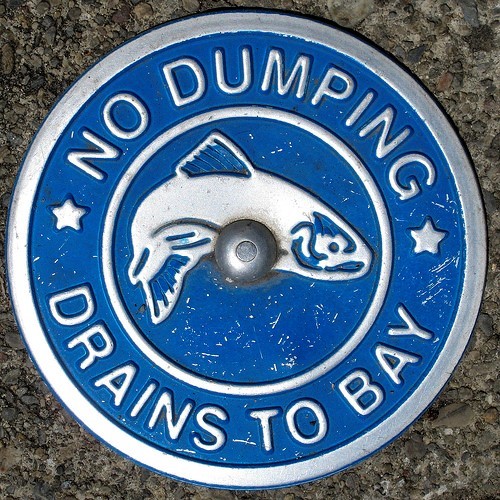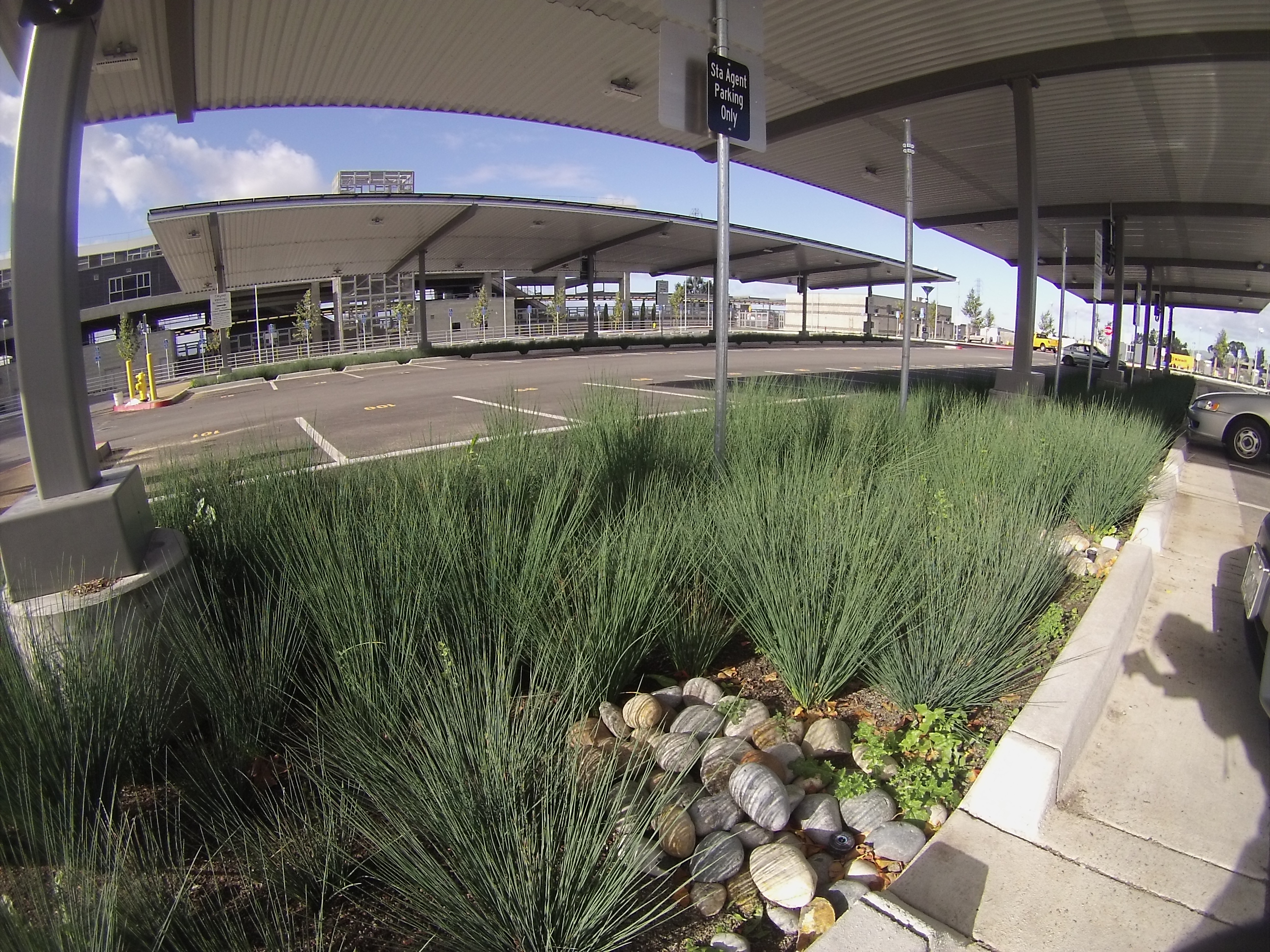BART uses about 52 million gallons of water annually, of which about 72% is for general purposes and 28% is for irrigation specifically. On average, the general station water usage is roughly 632,000 gallons per year per station. However, this number varies greatly by station depending on irrigation needs, bathroom usage, and how recently fixtures have been upgraded.
More details can be found in the most recent Annual Sustainability Report.
Preventing Stormwater Pollution
Riders can join BART in preventing storm water pollution
Trash is a major storm water pollutant in California. Because storm water flows to the bay untreated and unfiltered, trash discarded on land frequently makes its way into streams, creeks, rivers, and eventually the ocean, as rain storms wash it into gutters and storm drains.
Types of trash commonly found in waterways include cigarette butts, paper, fast food containers, plastic grocery bags, cans and bottles, used diapers, appliances, and more.
What BART Riders Can Do
- If you see a problem with overflowing trash cans or Dumpsters or a leak of any kind at a BART station, please help protect our environmental and report it to a Station Agent.
- Put litter in its place: Dispose of trash into garbage and recycling receptacles provided by BART in our stations and parking lots. Please clean up after pet waste as well.
- Avoid disposable cups: You can prevent litter by using reusable containers like travel mugs.
- Decline the printed receipt at BART ticket and parking machines if you can.
Cars are another major source of water pollution in the Bay Area. Leaked fluids like oil and particles from exhaust and other contaminants end up on our roads and then are washed untreated into storm drains that lead directly into our waterways. Birds, fish, and other animals are then exposed to the pollutants.
Keeping cars off the road and our waterways cleaner is one more environmental benefit BART offers to riders and the Bay Area.

What Riders Can Do
Car maintenance
You may not be polluting but your car may be. If you drive to BART, please ensure your car isn’t leaking. Regular tune ups and leak inspections can prevent leaks or fix them if you have one.
Car wash
The grime on your car that includes residue from gasoline, motor oil, and other chemicals can get washed off during a rain storm if your car is parked in one of our outdoor lots. Help prevent this runoff by taking your car to a commercial or coin operated self-service car wash where all wash water is recycled and properly disposed of.
What BART is Doing
- BART has installed storm drain markers to inform the public that what goes down that drain flows to the bay.
- BART uses drought resistant plants and efficient irrigation systems in our landscaping to preserve water and minimize run-off.
- BART cleans parking lots and plazas at least weekly to remove trash and pollutants.
- BART recycles the water used to wash train cars.
- BART has moved towards low-impact development (LID) as a standard practice, which is an approach to land development that works with nature to manage storm water as close to the source as possible.
- At several locations, BART uses biofiltration to remove pollutants from our parking facilities. The new Warm Springs Station has multiple bioswales installed in the parking areas.
People who choose BART instead of driving are helping keep our waterways clean. We ALL play a role in keeping our waterways clean, safe, and healthy.
